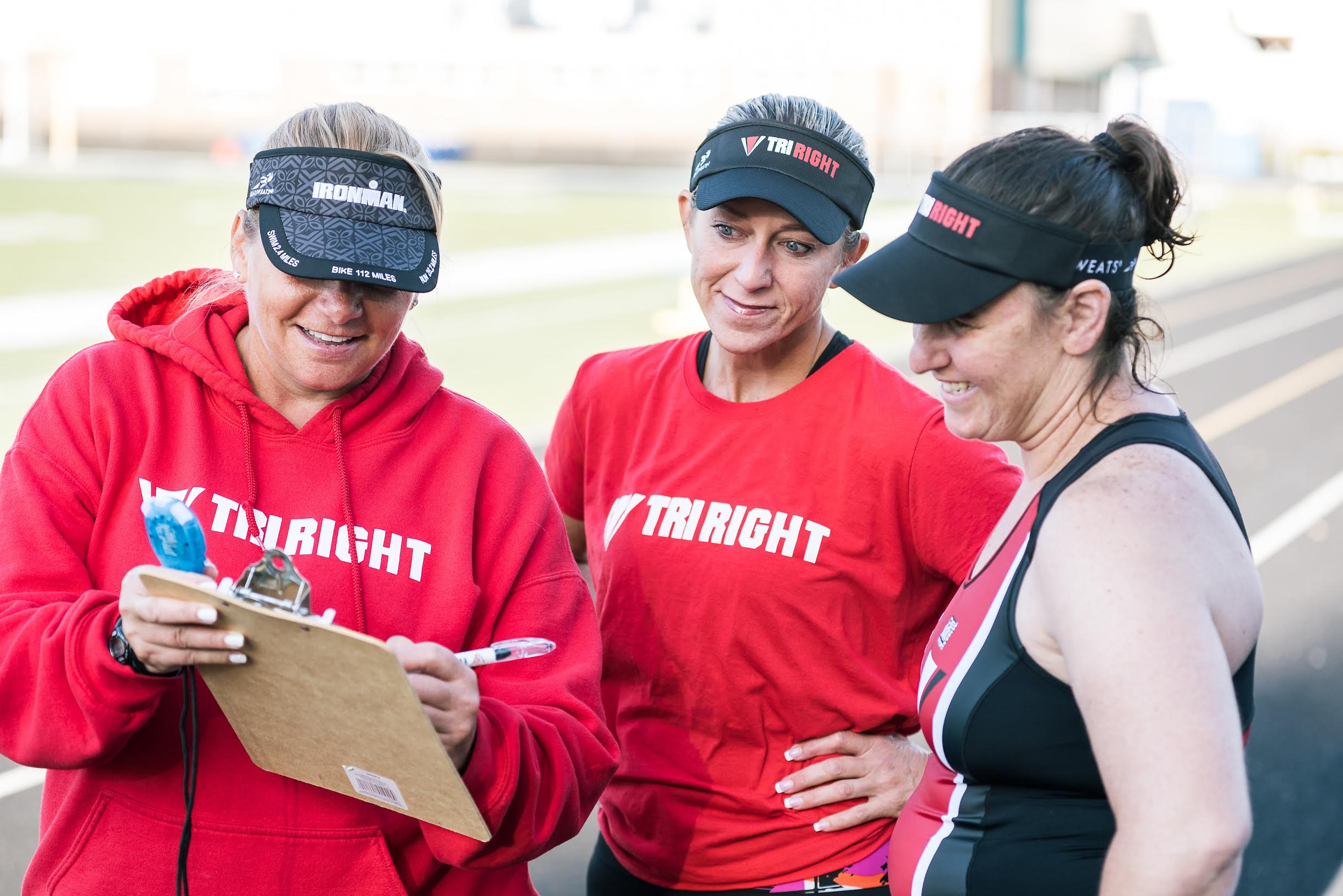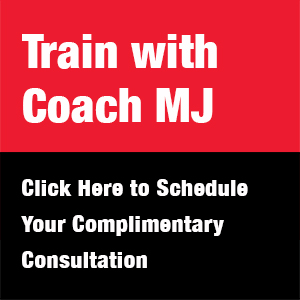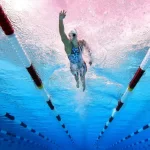Need a triathlon coach? Or maybe you need a new one because the one you have just isn’t cutting it for you anymore. Whether you’re a new triathlete or a seasoned veteran, having a coach is a big step toward improving your performance.
Coaches help push you to achieve your goals. But whatever your reasons are for wanting (or needing) a coach, the biggest question is where do you begin to look for a coach and how exactly does a person go about choosing the right coach?
Think of choosing a triathlon coach like a job interview. Finding the right triathlon coach is an important first step toward accomplishing your goals. If an athlete and a coach are well matched, it is almost certain that the athlete can go on to reach potential. However, even the greatest athletes and coaches can be mismatched and find their results together aren’t ideal. Knowing what you should ask potential coaches will help you find the right fit, as well as what you’re looking for and what you want in a coach.
Never jump blindly on board with the first coach you meet. Set up a time to discuss your expectations, and more importantly, theirs. Have your questions prepared and discuss every detail until you have found the right candidate for the job. Here are a few questions to get you started:
- Is your training program based on science or feel? Some coaches rely heavily on data to structure their workouts and measure their athletes’’ progress, while others favor the rate of apparent effort. Either method can help you get fitter and faster, but scientifically based training can be much more expensive and usually requires much more time analyzing.
- How do you measure success? It is the goal of every coach to help their athletes achieve their desired goals, but it’s also good to ask what is their expectation of you?
- What is their athletic background? Finding out the coach’s background is essential to helping you be a well-rounded athlete. For instance, if running is your weakness, it is in your best interest to find a coach with a strong running background.
- Do they have a group of athletes you can train with and what are their goals? Training with a group not only serves as good motivation to get out and train, it is also beneficial to have others around to push you when you need it most.
- What is their coaching experience?Do they have proven experience at successfully coaching athletes or have they only coached one or two people? However, just because they have been successful doesn’t mean they’ll automatically be the right fit for you.
Then it’s important to determine what you want out of a coach. Here are some questions you should ask yourself before you hire a coach:
- Why do you want a coach? It may seem like an obvious question, but you need to ask yourself what you’re looking for in a coach. Make a list describing why you want to trust your training to someone other than yourself.
- What is your budget?Make sure you have a monthly budget in mind before you begin your interview process. You may find that you need to either modify your budget or your coaching expectations as you start interviewing. Coaches fees will vary depending on their success rate and services provided.
- How much time do you have to devote to training? Do you have a consistent work and family schedule, so you can devote specific days and time to your training? If so, you may not need a custom plan. But if your life is unpredictable, perhaps with a lot of travel, you may need a coach that will be willing to customize a training program that can adjust to your schedule.
- How much contact do you need or want from the coach at training sessions? If you want personal attention and want them to be at every workout to help you with technique, form and motivation, then you can expect to pay more for that personal attention. You can get quality instruction and develop camaraderie in group coaching, which also helps reduce the cost.
- How much contact, outside of actual training sessions, do you want with your coach?If you’re looking to have 24/7 access to your coach, you’ll have to find a coach willing to do that – but expect to pay a premium for this service.
- Do you want the coach to be at your races?If it’s important to you for your coach to give you moral support at your races, you’ll have to find a coach that will do that – but again, expect to pay more for this service.
- At the end of 3/6/12 months, how will you and the coach know that your experience together was successful? The two of you will have to determine how you’re going to measure that success.
Being very clear about your goals and needs will help you better evaluate the variety of coaches and training plans out there.
Choosing a triathlon coach is an important step in accomplishing your goals. A great coach is a strong partner to help you make your dreams a reality. Take your time, do your research, ask a lot of questions, select the right coach, and then make a strong commitment to work together over the long term. Consistent training will bring great results.
This is not just about this season. A great coach will help you get the most out of yourself physically and mentally. This coach will be a big part of your life while you work together. So be sure to find someone that you feel is not only going to make your triathlon performances better, but will contribute positively to your life.
At Tri Right Coaching, we offer personal attention and interaction. Each and every client at Tri Right is given individual tools, tips and instruction based on number of variables. Contact us today to schedule a free consultation. Find out how we can help you in your triathlon endeavors!







